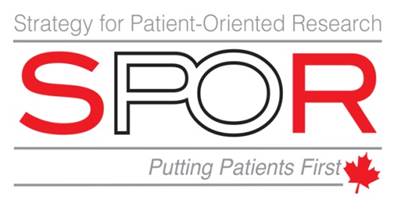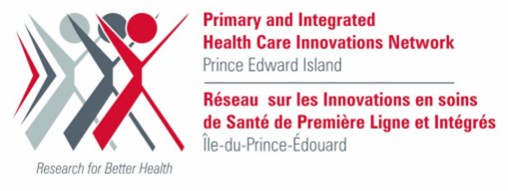

Home | Overview | Priorities | Projects
Diabetes Intervention Program for Older Adults -ON, QC, PE collaboration
This project is a scale up and spread project that originated in Ontario and that investigates the logistics of linking community organizations, such as the YMCA to health service delivery. A diabetes education program that involves , education, diet and fitness will be delivered to seniors 65 years and older.with at least one other chronic condition in addition to diabetes.
Living with diabetes and other chronic (ongoing) conditions is common in older adults. These individual have poorer health and higher use of health services compared to older adults with diabetes alone. Programs that help older adults self manage their diabetes and other health related conditions benefit both individuals and the health system The McMaster University Aging Community and Health Research Unit developed and tested a new patient centered community based program to improve the delivery and outcomes of care for older adults with diabetes and other chronic conditions. The 6 - month program was developed in partnership with patients, caregivers, primary and community care providers and researchers. This program is delivered by nurses, dietitians and community providers. It involves in-home visits by nurses and dietitians, monthly group wellness sessions at community centers and monthly team meetings. Wellness sessions include exercise, education, shared meals and social support. Caregivers are invited to be active participants along with the patient. The program was successfully implemented in Ontario and Alberta. Participants who had received the program had better quality of life, self management and mental health at no additional cost compared to those receiving usual care.
To determine how the program can best help people, more testing is needed with different communities and groups of people. We are partnering with primary teams (e.g. family doctors offices) in three provinces to adapt and test the program in a variety of settings. We will asses how best to put these programs and measure outcome s important to patients and caregivers so study results are relevant to them.
Study findings will guide the development of a plan for expanding the program to reach and benefit more older adults with diabetes and other chronic conditions. Patients and caregivers will be involved as key partners in all aspects of research
Concussion Awareness Program
Concussion and issues related to post concussion events have gained prominence in North American media, as they become a major focus of injury prevention in sports and recreation activities across all levels of participation. In brief, a concussion is a brain injury. Sometimes referred to as a mild traumatic brain injury, a concussion results from impact to the brain as a consequence of a blow to the head, or a severe collision of the body. At the University of Prince Edward Island we are conducting exciting research that investigates the various areas of concussion assessment and return to work.
Once accepted as a common and even expected event within sport, concussion has emerged as a prominent sports-related injury at all levels of physical activity, especially where the risk of head trauma is prevalent. Concussion has gained attention because it is linked not only to acute and current trauma, but because the concussion condition has also been linked to post-injury depression as well as long-term dementia.
Currently, there is no single comprehensive strategy for establishing baseline estimates against which recovery from concussion injuries will be compared; and likewise, there is no comprehensive single strategy for establishing return to work following a concussion injury with the exception of rest until symptoms have disappeared.
Brief Child and Family Phone Interview (BCFI)
This survey provides a snapshot of current mental health status of youth on PEI. This project will attempt to link youth mental health outcomes to current programming such as Stronger Families as a method to evaluate the effectiveness of current mental health programming on PEI